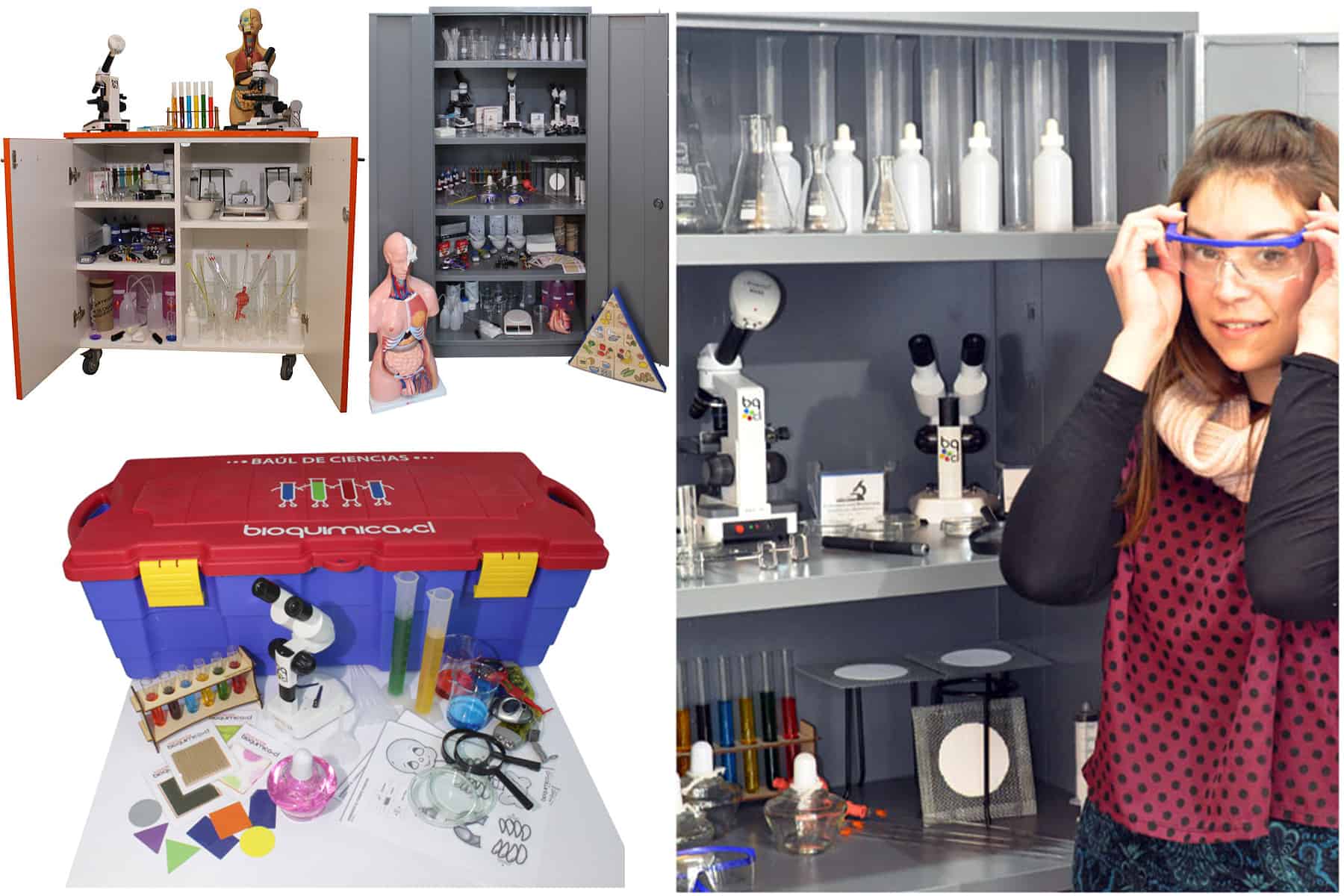A Tico-Chilean couple is looking to improve science learning in Costa Rica with a new experiment-based teaching program based on mobile laboratories. The modules are designed to give students the tools to conduct their own scientific experiments in any classroom.
The lab kits include a supply of materials, equipment and guided instructions for performing experiments such as extracting DNA from fruit, understanding the properties of light and sound, and cultivating microbes.
The learning program dubbed Experimenta is the work of Costa Rican biologist Daniela Mendoza and her husband Matías Gutiérrez, a Chilean biochemist.
The couple launched their company Bioquímica in Chile in 2010 and two years ago they launched the Experimenta program in public and private schools there.
Currently, there are 500 teachers at 170 schools using the program in Chile, and this year the entrepreneurs have set their minds on introducing it in Costa Rica.
Learning science by doing
The Experimenta program’s modules come in three sizes: the science box, the mobile lab and the science cabinet. They include chemicals, lab containers, beakers, scales and microscopes.
Print guides describe up to 56 scientific experiments in biology, physics and chemistry. Each kit allows experiments in groups of up to 45 students at a time.
Gutiérrez said experiments are designed to capture the students’ attention in a learning-by-doing experience. There are modules for students of all ages, from preschool to college.
“Students are the lead players in their own learning process, and this allows them to develop their creativity as well as many other skills,” he said.
For teachers, the program includes guidebooks and an online training platform. There’s also an online schedule with a detailed description of the program’s learning goals.
Mobile labs in Costa Rica
Mendoza said the idea of offering the program in Costa Rica came in late 2014 when the University of Costa Rica’s Faculty of Education bought three mobile labs and started using them in their teaching programs.
“We then started evaluating science programs at elementary and high schools in order to adapt our materials and learning activities to the requirements of Costa Rican schools,” she said.
In May, the entrepreneurs presented the program at a public event here. Officials from the Public Education Ministry (MEP) expressed interested in considering the program for local elementary schools, the couple said.
“We’re currently in conversation with MEP officials to launch a pilot program to evaluate the results,” Mendoza said.
She said various private schools have also requested information about the Experimenta program.
The State of Education 2015 report concluded that one of Costa Rica’s main challenges is to boost self-directed learning strategies at public schools.
The report also found that students are capable of selecting, managing and assessing their own learning experiences if they are faced with challenging situations that require them to explore and make their own decisions.
“As scientists we both are passionate about science learning and we believe our program would help standardize and improve science education here,” Mendoza said.
If approved the pilot program would begin as soon as next year at three public schools, she said.






